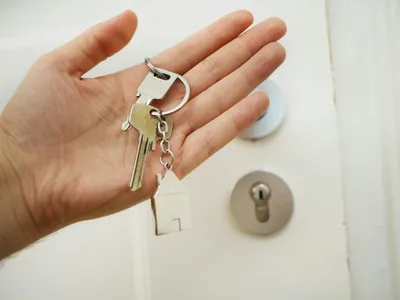Closing costs can be a significant expense when purchasing a home in Illinois that are not often considered when planning for a expenses of home ownership.
What are closing costs?
Closing costs are the fees and expenses you must pay before becoming the legal owner of a house, condo or townhome. Closing costs vary depending on the purchase price of the home and how it’s being finance. These costs are fees that must be paid at the time of closing, which is the final step in the home buying process.

The best estimate for budgeting closing costs is 2%-3 1/2% of the purchase price of the home outside of your down payment or cost of the home itself.
Here is an outline and breakdown of all of the various fees that can be included in closing costs paid for by the buyer on the transaction and what they cover.
-
Home inspection – Always recommended, and may include a radon test if there is no radon system in the home. In addition, some buyers prefer to also hold a sewer scope in addition to the traditional home inspection.
-
Appraisal – ordered through the lender if the home is being financed. No appraisal needed for a cash purchase to close on the home.
-
Credit report fees, if any, charged by your lender
-
Lender origination fees (if any)- -This fee is charged by the lender to cover the costs of processing your loan application.
-
First year’s insurance up front at close – required by the lender
-
Government recording costs
-
Title fees -A title search is performed to verify that the seller has the right to sell the property and to identify any liens or encumbrances that may be attached to the property. The fee covers the cost of conducting the title search.
-
Title Insurance Fee: Title insurance protects you from any potential title problems that may arise after the sale has been completed. The fee covers the cost of the title insurance policy.
-
Recording fees by the state for property transfers.
-
Some towns require property transfer stamps to be purchased prior to closing.
-
Attorneys fees – real estate attorneys for closings almost always charge a flat fee for closings.
-
Buyers will be getting a tax credit from the seller because Illinois pays their property taxes in arrears, meaning, that any payments made in the year 2023, are actually going towards your 2022 tax bill. Due to this, all sellers have to give their buyers a real estate tax credit for the number of days they owned that property in that calendar year to cover the bill the new buyers receive in the next tax cycle. This money is usually then given to the lender which holds onto the tax bill “escrow” for the borrower and then pays the tax on their behalf.
-
Transfer Taxes: Transfer taxes are a tax on the transfer of ownership of the property. The amount of the tax will depend on the local jurisdiction.
-
Homeowner’s Association Dues: If the property you are purchasing is part of a homeowner’s association, you may be required to pay dues.
-
Pre-Paid Interest: Pre-paid interest is interest that must be paid in advance for the period between the closing date and the first day of the next month.
-
Hazard Insurance Premium: Hazard insurance protects the property against damage from events such as fire, theft, and other hazards. The fee covers the cost of the insurance premium.
-
Underwriting Fees
In summary, it’s important to keep in mind that closing costs can add up quickly and vary greatly depending on the lender, the type of loan you are getting, and the property you are purchasing. Before you close on a property, make sure to get a good understanding of all the fees that will be included in your closing costs, work with a trusted professional to help guide you through the process. This will help you avoid any unexpected expenses.



